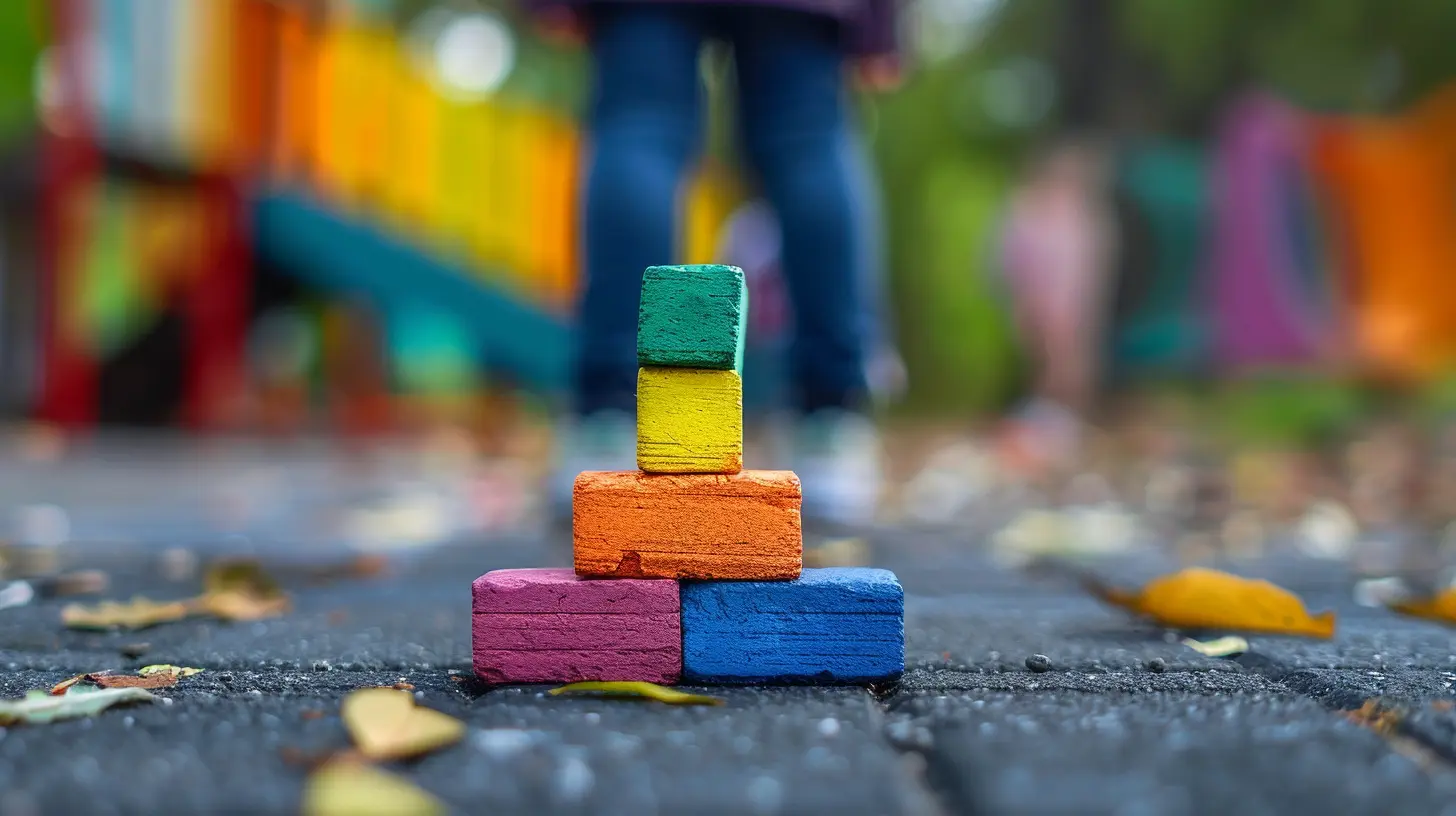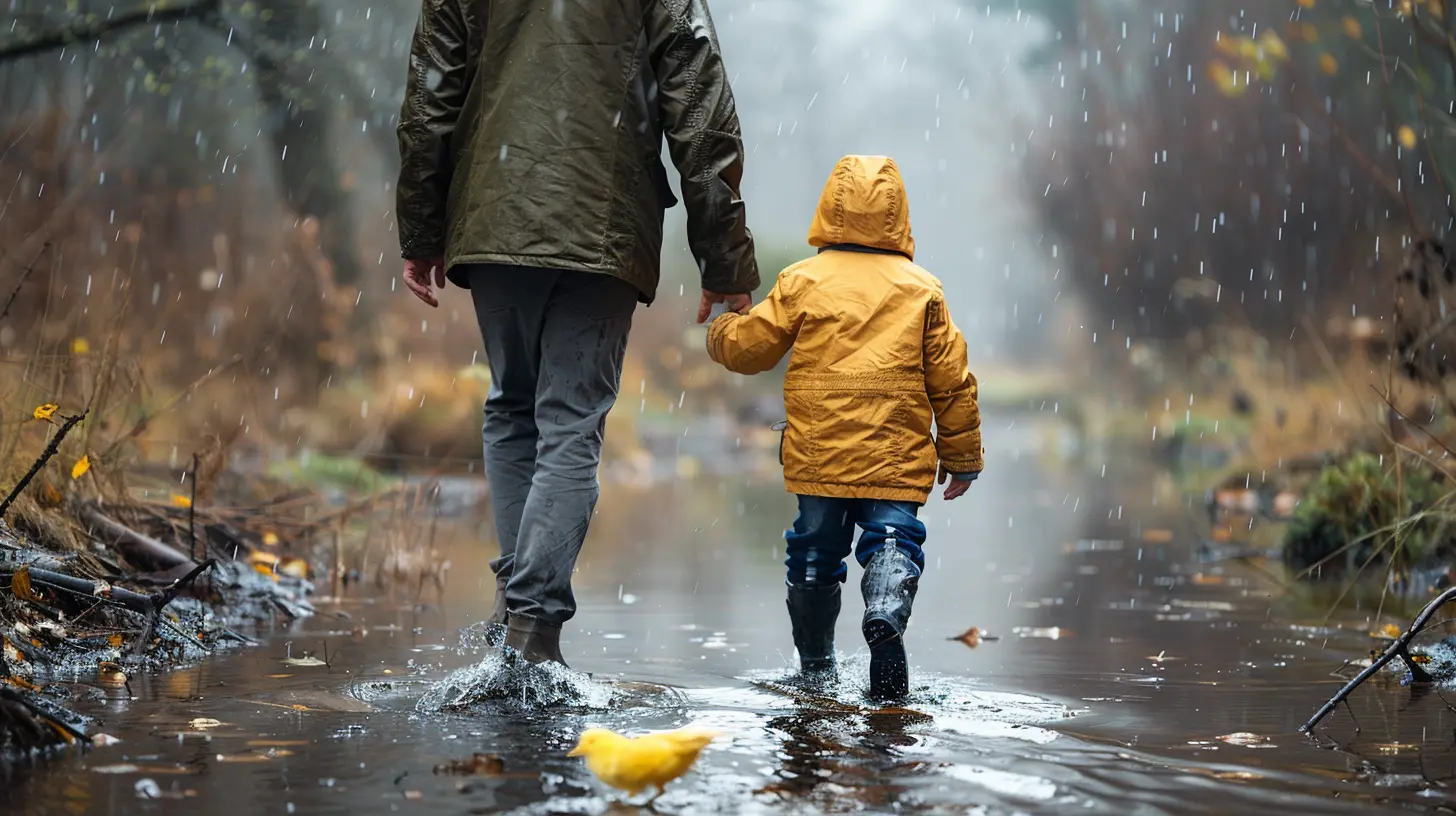How to Teach Critical Life Skills Through Everyday Activities
22 October 2025
Let’s be honest: when someone says “life skills,” most of us immediately picture school lectures or those mandatory workshops with half-bored teenagers doodling in notebooks. But here’s the kicker—life skills are everywhere. Seriously. They’re hiding in the laundry pile, lurking in your kitchen, and even showing up when you’re stuck in traffic with your kids.
So what if I told you that teaching these essential survival skills doesn’t require a classroom or a PowerPoint presentation (phew)? You can turn the most everyday stuff into golden teaching moments. Yes, even doing the dishes. Stick with me, and I’ll show you how to sprinkle wisdom like salt on fries—effortlessly and with a touch of sass.

What Are “Critical Life Skills” and Why Should You Care?
Before we dive in, let’s demystify the term. Critical life skills are a grab-bag of abilities that help you, well, adult. These include problem-solving, communication, financial literacy, time management, emotional intelligence, decision-making, and more. Basically, all the stuff we wish we learned before our first rent bill arrived.If you're raising kids, mentoring someone, or just trying to be a responsible human, understanding how to weave these skills into daily life is like having a superpower. And who doesn’t want to be a superhero?

Let’s Start with the Kitchen: Teaching Through Cooking
Ah yes, the kitchen—where you either create Michelin-worthy meals or accidentally summon fire alarms. But this magical space is also Life Skills University.🥦 Life Skill #1: Planning and Organization
Making dinner? That’s a multi-step operation. From selecting a recipe to shopping for groceries and timing the cooking process—which dish goes first? When does the pasta hit the boiling point?—you’re pretty much managing a small project. Involve your kids (or younger siblings) and let them feel like mini project managers.Teaching Tip: Have them plan a meal for the family once a week. From budget to grocery list to execution—boom, they just aced Planning 101.
🧂 Life Skill #2: Budgeting and Making Smart Choices
Grocery shopping offers a fun twist on Math meets Real Life. Compare brands, calculate unit prices, use coupons—it’s like a game show with snacks at the end.Bonus: It also opens the door to talking about needs vs. wants. Do we really need that $8 bottle of truffle oil?
🔥 Life Skill #3: Coping With Failure
Burned the toast? Forgot the salt? Welcome to the club. Cooking teaches resilience. Things go wrong, you learn, you laugh (or cry a little), and you try again. That’s emotional endurance in its rawest, most delicious form.
Chore Time: Where Responsibility Meets Routine
Chores are often seen as the enemy of fun, but they’re secretly Jedi training.🧹 Life Skill #4: Responsibility and Accountability
Assign age-appropriate chores and follow through consistently. When kids see their role in maintaining a household, they understand the value of contribution. No, the laundry fairy doesn’t exist—and yes, those mismatched socks are your own doing.🗓 Life Skill #5: Time Management
Give them a deadline. “Clean your room sometime this week” won’t fly. Try: “You’ve got till 5 PM Saturday.” Introduce calendars, to-do lists, even timer apps if they’re into tech. Time isn’t just money—it’s a teacher, too.
Car Rides: The Classroom on Wheels
Car rides are prime time for teaching. It’s like being stuck in a podcast—except you’re the host.📻 Life Skill #6: Communication
Talk. Sing. Debate funny topics like “Would you rather have spaghetti for hair or be a giant marshmallow?” These chats can easily evolve into deeper conversations about life, empathy, and handling conflict. Plus, it’s way more fun than awkward silence.🚦 Life Skill #7: Patience and Self-Control
Red lights? Traffic? That’s frustration therapy in real-time. Lead by example. You might be screaming internally, but on the outside, teach calm responses. Take deep breaths, roll the windows down, play relaxing music—fake it 'til you make it.Money Matters: Finances Without the Fear
Money talk doesn’t have to be dull or intimidating. In fact, the sooner kids learn about money, the better equipped they’ll be to conquer the real world.💸 Life Skill #8: Basic Budgeting and Saving
Give them an allowance or a small amount of money to manage. Teach the “save, spend, share” model—dividing money into jars or envelopes for different purposes. It’s like giving them tiny bank accounts dressed up in arts and crafts.🛍 Life Skill #9: Delayed Gratification
Want that new game or fancy gadget? Save up. Let them earn and wait. Teaching kids to delay gratification is like planting seeds for future financial wisdom—and patience. Best part? It reduces impulse spending down the road.
Arguing? That’s Learning in Disguise
Disagreements pop up all the time. Siblings bickering? Friends not seeing eye to eye? Instead of squashing every argument, use those moments to teach conflict resolution.🧠 Life Skill #10: Emotional Intelligence
Help kids label their emotions—“You’re frustrated because your sister took your toy, right?” Teaching emotional awareness helps them understand themselves and others better.💬 Life Skill #11: Negotiation and Compromise
Guide them through “win-win” outcomes. Let’s say one wants to watch cartoons and the other wants to play video games. They both get 15 minutes of screen time for each activity. That’s Diplomacy 101.Shopping Trips: More Than Just Aisles and Carts
Ever looked at a shopping trip as a treasure hunt for life hacks? You should.🧾 Life Skill #12: Decision-Making
Stand in the cereal aisle with 50 options and ask, “Okay, what’s our criteria here? Price? Sugar content? Coolest toy inside?” Help them weigh pros and cons. That’s critical thinking in action.🧍 Life Skill #13: Social Skills and Manners
Saying “please,” “thank you,” and interacting with clerks builds confidence and respect. If your kid can return an item or request help politely, they’re already ahead of the game.
Volunteering: The Ultimate Life Skills Bootcamp
Nothing builds character like giving back. Whether it’s helping at a shelter or organizing a community clean-up, volunteering teaches more in a few hours than weeks of lectures.🤝 Life Skill #14: Empathy and Compasssion
When kids see life from someone else’s perspective, it opens their eyes—and their hearts. It helps them understand that their reality isn’t the only reality.👥 Life Skill #15: Teamwork and Leadership
Working with others toward a common goal reveals strengths, weaknesses, and the power of unity. Sometimes they’ll lead, sometimes they’ll follow—and both roles are equally valuable.Hosting Parties and Family Events: Real-World Logistics
Throwing a birthday party or planning a BBQ? That’s a life skills gold mine wrapped in balloons.📋 Life Skill #16: Planning and Coordination
Pick a theme, send invites, manage RSVPs, organize food, and set up schedules. Involve the kids and you've basically made them junior event planners.🙌 Life Skill #17: Adaptability
When the cake falls or the weather turns rogue, how do they respond? Teaching kids to adapt proves that even chaos can be navigated gracefully—with the right attitude and maybe a backup plan (pizza delivery, anyone?).
Digital Life: Navigating the Online Jungle
Let’s not ignore the screens—they’re part of our daily lives. Teaching kids how to use tech wisely is probably the most modern life skill out there.💻 Life Skill #18: Digital Literacy
Show them how to research things properly online (spoiler: not everything is true). Talk about privacy, security, and the importance of not clicking every shiny link.👀 Life Skill #19: Setting Boundaries
Teach screen time management and digital detoxing. Help them develop a healthy relationship with technology—one where they’re in control and not seduced by endless scrolling.Final Thoughts: It’s All About Being Intentional
You don’t need a teaching degree to pass on life skills. All it takes is mindfulness and a sprinkle of creativity. Whether it’s dancing in the living room, folding laundry, or navigating a meltdown over mismatched socks—every moment has the potential to be a life lesson.Of course, no one’s perfect. Some days, the dishes don’t lead to deep conversations. Some teachable moments will pass by unnoticed. That’s okay. The secret sauce is consistency mixed with a pinch of patience. Keep showing up. Keep laughing. Keep turning “boring” into brilliant.
Because let’s face it: life is the biggest classroom of all—and you, dear reader, are one awesome teacher.
all images in this post were generated using AI tools
Category:
HomeschoolingAuthor:

Eva Barker
Discussion
rate this article
1 comments
Astralis McPhail
Great article! Teaching critical life skills through everyday activities is such a practical approach. It’s amazing how simple moments can become powerful learning opportunities. Can’t wait to try out these tips in my own life!
October 30, 2025 at 12:40 PM

Eva Barker
Thank you for your kind words! I'm glad you found the article helpful and inspiring. Enjoy incorporating these tips into your life!


